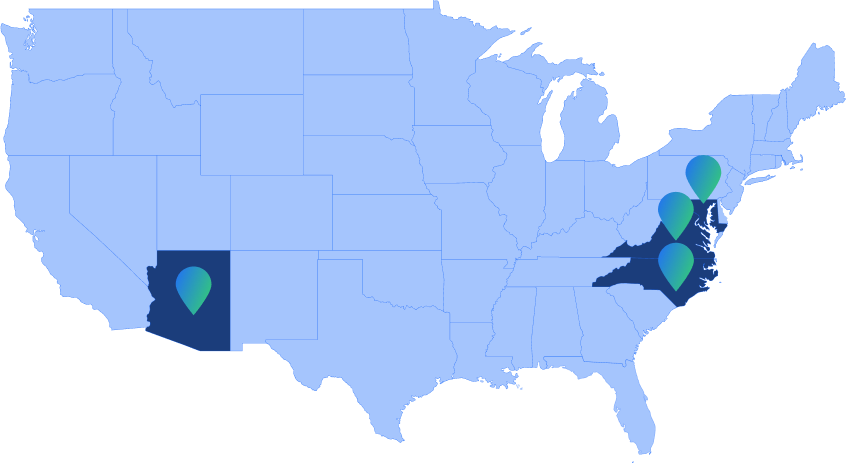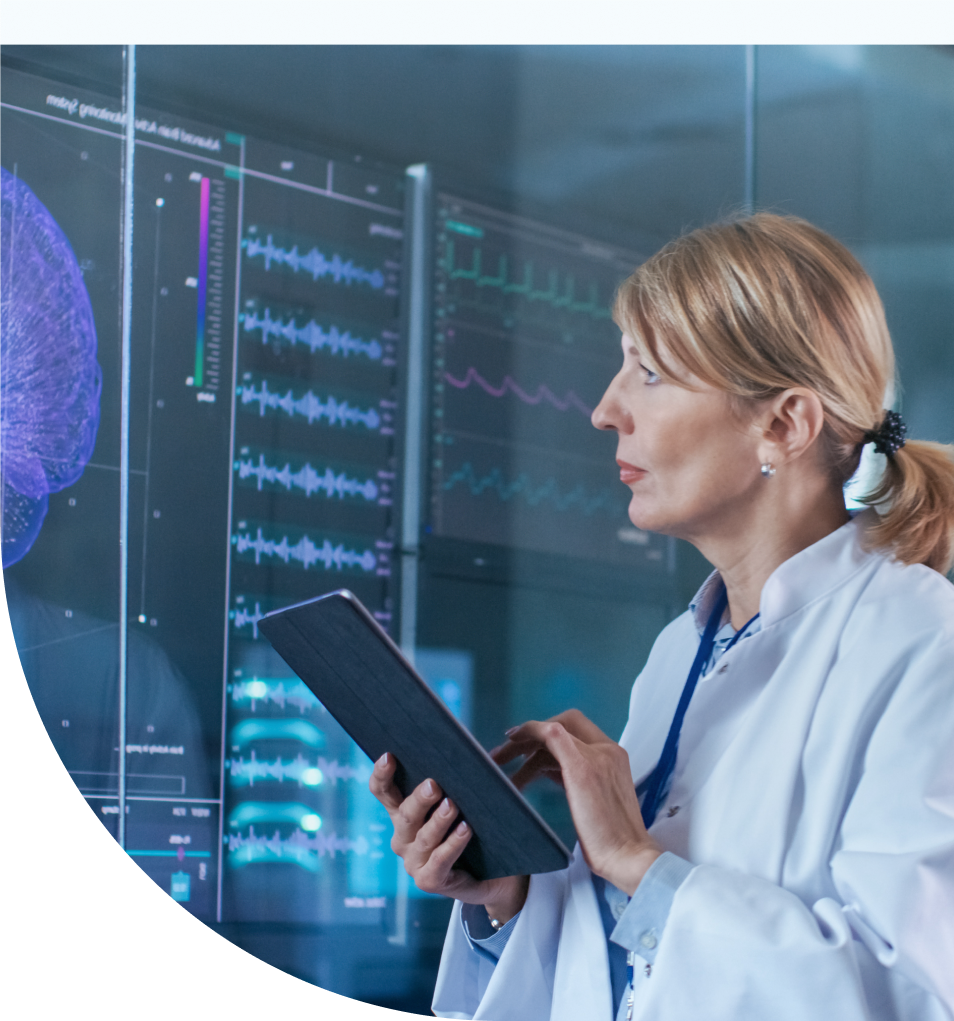Our Tests
EEG (Electroencephalogram)
An EEG is a safe, noninvasive diagnostic tool used to measure neuronal (electrical) brain activity to evaluate and diagnose neurological-related medical conditions, including:
- Epilepsy
- Encephalopathy
- Cerebrovascular diseases
- Sleep disorders
- Movement disorders
Astir Oath Neurodiagnostics offers on-site and in-home routine and long-term Ambulatory EEG Testing, with or without video. We offer providers live remote access by way of a HIPAA-encrypted, secured connection to ensure the best patient care.
Coverage Area
We currently offer in-home neurodiagnostic testing in the following areas:
- North Carolina
- Arizona
- Virginia
- Maryland
- Washington, DC

What We Offer
Routine EEG Testing
Experience the convenience of in-home routine EEG testing, designed for patient comfort and quick diagnostics.
This service involves standard neurodiagnostic activations and is performed by trained EEG technologists directly at the patient’s home or on-site in a medical facility.
Long-term EEG Testing with or without Video
Our long-term EEG services provide detailed insights over extended periods, ranging from 24 to 120 hours. Available with or without video, these tests are crucial for a comprehensive assessment of neurological conditions and can be conducted in patients’ homes or in healthcare facilities.
Service Benefits

Real-time Intermittent Remote Monitoring
Perform and Document EEG Data in Real Time
Our board-credentialed (ABRET- R. EEG T.) neurodiagnostic technologists perform and document real-time reviews of EEG data at least every 2 hours during the entire recording period. This assures the integrity and quality of the recording while identifying the need for maintenance and, when necessary, notifying the physician or other qualified healthcare professional of clinical issues.
To ensure the highest level of care and comfort for patients and their families, our team of remote monitoring technologists is available 24/7 for live patient support.
In compliance with the 2020 Long-term EEG Monitoring CPT coding structure and definitions: One technologist will be assigned no more than 12 patients to monitor concurrently, which includes annotation and reporting of technical and clinical findings.
Real-time Physician Daily Review
Daily Live Remote Access for Physicians
As a leader in in-home ambulatory video EEG, we offer epileptologists and neurologists secure, daily live remote access to patients undergoing long-term in-home EEG testing.
Providing this extra level of service gives our interpreting physicians the option to diagnose, treat, and, at times, alter the duration of the recording in real-time, which may improve clinical patient outcomes.
IT Access
USMON Control Log Software

Astir Oath Neurodiagnostics utilizes USMON’s Control Log Software as our standard remote access solution. Hospitals, physicians, and clinical staff can access the secure connection portal and install the remote desktop application on individual hospital devices and EEG equipment. This option establishes a secure, remote access, HIPAA-compliant, encrypted software on your preferred devices, which remains available for all subsequent patients. Clinical staff can initiate a secure link with each new patient; remote access is only allowed once your clinical staff initiates a connection.
Hospital and Facility Access Systems – We can work within your existing system to allow our staff to remotely access specific applications while testing your patients. This access enables our team to proactively monitor, troubleshoot, and manage security threats on multiple devices.
Authorized Users only with role-based access and permissions.
Prior to patient testing, connectivity issues are tested related to firewalls and other security features.
24/7 live patient support.
All database activity is continually monitored and recorded with an audit trail system. Every user is tracked when logging in and out of Astir Oath Neurodiagnostics platforms.
The use of encryption software allows for secure communication from PC to PC.
Periods of inactivity leads to automatic logout, which prevents unauthorized access to data.
Servers are hosted in a Data Center with SAS 70 Certification. Firewall protection, 24-hour monitoring, and locked server cages ensure “best practices” for the physical security of patient data.

